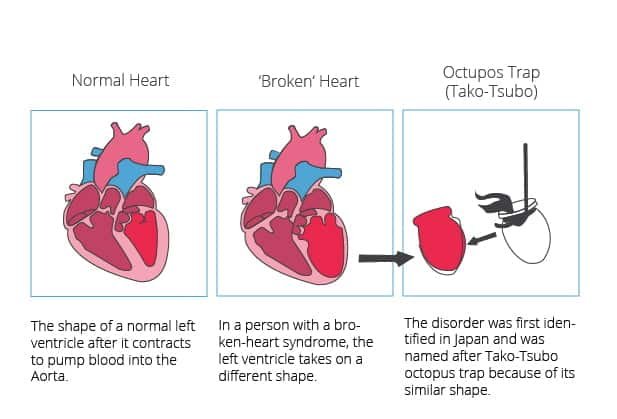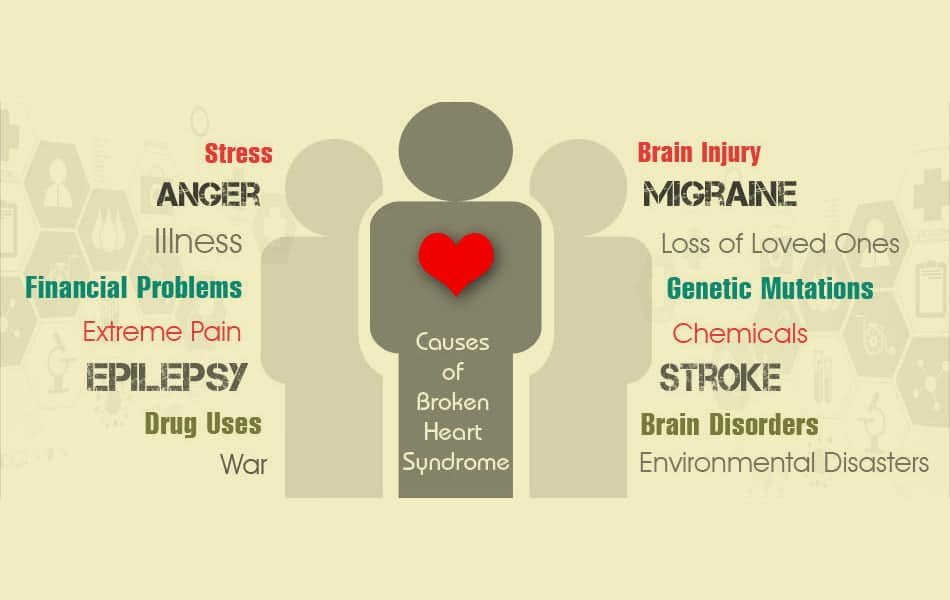Heartache Syndrome, also known as Broken Heart Syndrome or medically referred to as Takotsubo cardiomyopathy, is a condition that mimics the symptoms of a heart attack. It occurs in response to severe emotional or physical stress, such as grief, loss, or sudden shock. Recognizing the early indications of Heartache Syndrome is essential to ensure prompt medical attention, as it can have serious implications on one’s cardiovascular health. This article will explore the early signs and symptoms of this condition, highlighting the importance of addressing it promptly.
If you notice any warning indicators of a heart attack, don’t hesitate to get care. While some heart attacks begin gradually and cause only slight pain or discomfort, others are abrupt and severe. Keep an eye on your body and dial 999 if you encounter:
Understanding Heartache Syndrome
Heartache Syndrome is a temporary heart condition that can occur in individuals who experience intense emotional stress or trauma. Although it is often linked to grief and the loss of a loved one, it can also be triggered by other distressing events, such as job loss, divorce, a major medical diagnosis, or a traumatic accident. The name “Takotsubo cardiomyopathy” comes from the Japanese term for an octopus trap, as the heart takes on a distinctive shape resembling a pot used to catch octopuses.

Observe the symptoms early
- Chest Pain: One of the primary symptoms of Heartache Syndrome is chest pain. This pain can be sudden and intense, often mistaken for a heart attack. However, it is crucial to note that the pain in Heartache Syndrome is typically more fleeting and may not radiate down the arm or jaw, as is common in a heart attack.
- Shortness of Breath: Individuals with Heartache Syndrome may experience shortness of breath, even at rest. This symptom is often accompanied by a sensation of tightness in the chest.
- Irregular Heartbeat: Palpitations or an irregular heartbeat can be another early sign of Heartache Syndrome. Some individuals report a fluttering or racing sensation in their chest.
- Dizziness and Fainting: People with Heartache Syndrome might feel dizzy and can even faint due to the abnormal heart rhythm and insufficient blood flow to the brain.
- Excessive Sweating: Profuse sweating, without any other apparent cause, can be another early indication of this syndrome. It often accompanies the other symptoms.
- Discomfort: Nausea and vomiting can be experienced by some individuals with Heartache Syndrome, adding to the overall discomfort and distress.
- Weakness: A sudden feeling of weakness or fatigue, unrelated to physical exertion, can be a sign of Heartache Syndrome.
How can heart muscle weakening result from immediate stress?
Your body releases hormones and proteins like noradrenaline and adrenaline in response to stressful events, with the intention of assisting you in managing the stress. When stress triggers the abrupt production of large amounts of adrenaline, the heart muscle might become overwhelmed. A transient reduction in the amount of blood flowing to the heart can be brought on by an excess of adrenaline constricting the tiny arteries that feed it with blood.
On the other hand, adrenaline might attach itself to the heart cells directly and allow a significant amount of calcium to enter the cells. The heart cells may not beat correctly as a result of this high calcium intake. The effects of adrenaline during broken heart syndrome on the heart seem to be temporary and completely reversible – the heart typically recovers fully within days or weeks.
Who is at risk for the condition of broken hearts?
Women in their middle years may be more susceptible to broken heart syndrome. After the age of 55, the chance of having the illness rises fivefold. Although cases of the condition have been documented in males, women in their earlier years, and even in toddlers, postmenopausal women make up the great majority of patients. Although the precise explanation of this is unknown, it is thought that as women age and their estrogen levels drop, they become more susceptible to the negative consequences of rapid stress since estrogen, a female hormone, helps shield the heart from the damaging effects of adrenaline. An additional risk factor for this illness includes having a history of anxiety, depression, or neurological illness.
Importance of Early Detection
Early detection of Heartache Syndrome is crucial because it can often be mistaken for a heart attack, and the symptoms are potentially life-threatening. While Heartache Syndrome is generally reversible, if left untreated, it can lead to severe complications, such as heart failure or life-threatening arrhythmias. It is essential to distinguish between Heartache Syndrome and a heart attack, as the treatment approach may differ significantly.
Seeking Medical Attention
If you or someone you know experiences any of the early indications mentioned above, it is vital to seek immediate medical attention. A healthcare provider will conduct a thorough evaluation, including an electrocardiogram (ECG), blood tests, and imaging studies like an echocardiogram, to determine the underlying cause of the symptoms.
Conclusion
Heartache Syndrome is a condition that highlights the profound connection between our emotions and physical health. Recognizing the early indications of Heartache Syndrome and promptly seeking medical attention is crucial for a positive outcome. It is important to remember that while the condition can be distressing, it is generally reversible, and with the right medical care, most people can recover fully. So, take heed of the warning signs, and always listen to your heart, not just your emotions, when it comes to matters of the heart.
References:
- American Heart Association- https://www.heart.org/en/health-topics/heart-attack/warning-signs-of-a-heart-attack
- The Johns Hopkins Hospital- https://www.hopkinsmedicine.org/health/conditions-and-diseases/broken-heart-syndrome


